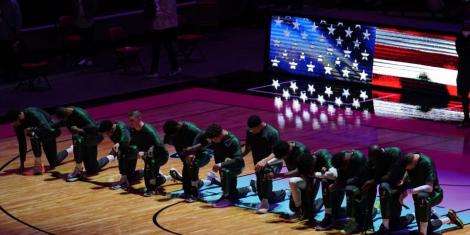
Taking a knee at Tokyo Olympics or lifting a fist in support of racial equality will be a punishable offence as the International Olympic Committee (IOC) maintained its ban on athletes’ protests inside stadiums, at ceremonies and on podiums while taking part at the event.
In a survey conducted by the Olympic Committee total of 3,547 athletes who will be featuring at the summer games and will represent 185 different countries and 41 sports had responded to the survey that relates a potential change of the International olympic committee rule 50 which condemns the protests and demonstrations of political, religious or racial activism on the olympic arena stating that they never felt the protests to be of essence.
The IOC’s Rule 50 forbids any kind of “demonstration or political, religious or racial propaganda” in venues and any other Olympic area and the Games body concluded the rule should be maintained following an athlete consultation.
Against the wave of the Black Lives Matter movement protesting racial injustice, calls have increased in recent months for a change to the rule that would allow athletes to protest.
Many say the IOC needs a wake up call as racism is not political, but societal matter that needs close attention and sports serves a platform that helps in raising awareness.
Some international federation chiefs, including World Athletics' President Sebastian Coe, have said that athletes should have the right to make gestures of political protest during the Games.
These has also caused a controversy among various athletes who strongly condemn racial and social injustices explaining that these athletes need to use the olympics platform in raising awareness about the societal matter as the olympics is widely considered to be a major event that brings together people of different genders,races,class etc.
After being postponed last year due to the COVID- pandemic, the Tokyo Olympics are scheduled to begin on July 23 and run through Aug. 8.
